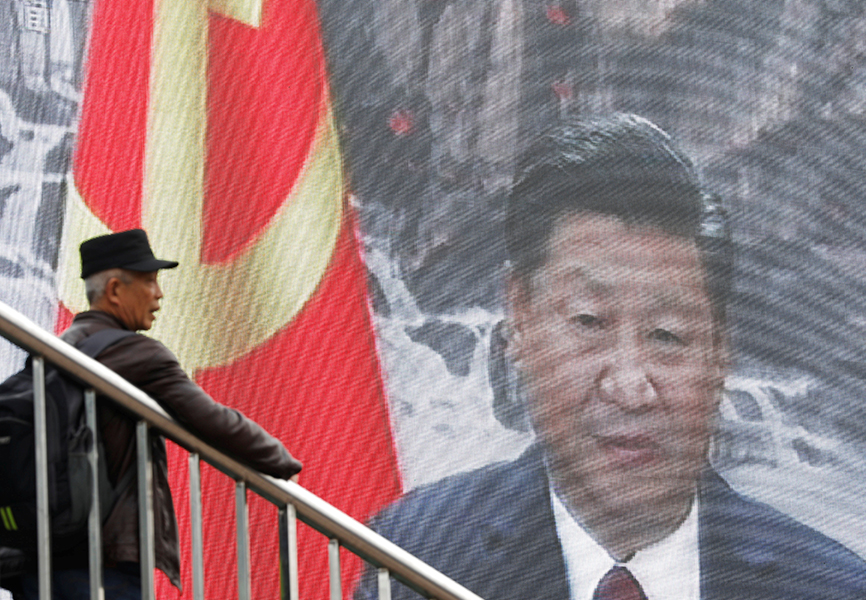私たちユーラシア・グループが世界のトップリスクを毎年公表するようになってから20年になりますが、この2018年ほど、世界経済の年間成長予測の高さと、純粋な政治リスクの現状に対する懸念の高さが、対局的に併存している年はこれまでありませんでした。2018年は、2008年の世界経済危機に匹敵するような地政学リスクが、いつ勃発してもおかしくない状況にあります。そして、ユーラシア・グループ創設者・社長のイアン・ブレマーと、会長のクリフ・カプチャンが編纂した今年の
トップリスク全文を読んでいただけばお分かりの通り、今年のリスクには日本と特に関わりの深い項目が多く挙げられています。
なかでもリスクのトップに挙げたのは、日本の皆さんにとって常に意識の対象となっている国、中国に関するものです。日本にとって特に重要なのは、米国の世界的なリーダーシップが低下する一方で中国は世界に対する明確なビジョンを構築している、という状況がいまや無視できなくなってきているということです。ソビエト連邦の解体以来初めて、米国の世界的な地位に正面から挑戦しようという国家が出現しており、それがまさに中国なのです。軍事的に中国はまだ地域的軍事大国に留まっていますが、習近平が毛沢東以来最強のリーダーだと言われる一方、アメリカが弱いリーダーを戴く状況は、日本にとって周辺情勢のリスクをより深刻なものにしています。米中両国は、現在の明らかなな競争関係を超えてテクノロジーの分野でもさらに冷戦を繰り広げる可能性があり、もしそうなれば、その世界経済・貿易に対するインパクトはより長期的なものとなって、日本にも必ずや影響が及ぶことになります。
私たちは今年の2番目のリスクとして「突発的事故」的なリスク項目をいくつかをまとめていますが、その中には朝鮮半島に近い日本にとってより重大な懸念事項が含まれています。ICBM が日本の上空を飛びかっている状況は、北朝鮮で何か事が起こればそれば日本の懸念に直結するということであり、既に不安定な米中間の緊張関係をさらに悪化させる可能性もあります。大きな危機に直結しうるこうした突発事故的なリスクに加え、私たちが6番目に挙げた伝統的な制度・枠組み劣化のリスクも、また別のレベルの世界的懸念を高めています。この点に関して日本は例外かもしれませんが、広く他の先進諸国においては専門的国家機関や官僚制度に対する国民の信任が大きく後退しています。国民及び国民の代表の多くが、官僚組織による物事の進め方に対する信頼をますます失っており、こうしたポピュリスト的な圧力が、7番目のリスクとして挙げた保護主義の台頭につながっています。これは日本にとっては悪いニュースに違いありません。
また、たとえ地理的に日本から遠い地域のリスクでも日本に直接的影響を及ぼす可能性があります。その例がリスクNo. 4のメキシコで、NAFTA再交渉と大統領選の両面でのリスクが想定されます。現在大統領選をリードする候補者の政策は、メキシコが1980年代以降実施してきた海外投資家優遇の経済政策からの基本的な決別を示すものです。その政策のNAFTAへの影響はグローバルに甚大であり、NAFTAの存在ゆえにメキシコに大規模投資を行ってきた日本企業にとっては、特に影響の大きなものとなるでしょう。そして、リスクNo.5の米国イラン関係は、日本にとっては、イランには豊富なエネルギーとビジネスチャンスがあるにもかかわらず、同国と深く関わることができない、ということを意味します。8番目のリスクに上げた英国及びブレクジットの問題は、既に日本の金融業界に戦略の再検討をもたらしています。リストの締めくくりとしては、南部アジアにおけるアイデンティティー政治とアフリカの安全保障リスクという、日本企業にとってこれら複雑な地域でのさらなる投資や事業活動に対するリスクとなり得る項目を挙げました。
現在日本が、先進工業国の中で最強のリーダーを戴いている一方、特に米国、英国、ドイツといった、ポピュリストからの反動を強く受けている主要国では、リーダーシップが弱体化しており、2018年は地政学リスクにことのほか注目すべき一年となるでしょう。人口減少、社会的均質性、難民問題の不在という状況から、日本は大変ユニークな位置を占めており、それが結果として日本の安定に寄与しています。しかしながら、日本企業が自らのビジネスに影響を及ぼす世界的な地政学リスクを理解することは必須であり、その意味からも、今年の弊社の
トップリスク全文及びそこからの知見が皆様のお役に立てば幸いです。
***
In the 20 years Eurasia Group has been analyzing geopolitical risk, there has never been a more paradoxical time between the high economic growth rates and the magnitude of risk. This year is ripe for a geopolitical crisis on the scale of the 2008 financial crisis. This year many of our Top Risks have particular relevance for Japan, as you will see in the
full report by Eurasia Group founder and president Ian Bremmer and chairman Cliff Kupchan.
Our Top Risk this year is China; never far from the Japanese mind. Most importantly for Tokyo the juxtaposition between questions over Washington's global leadership and Beijing's clear vision for the world cannot be ignored. For the first time since the dissolution of the Soviet Union, there is another nation that wants to take on American dominance explicitly; that nation is China. While its military is still more of a regional power, the fact that Xi Jinping is the strongest leader since Mao, coupled with a weak US President means the risk is even more acute for Japan. Beyond the explicit competition between the US and China, our third risk of a possible global tech cold war may have even longer-term implications for economics and trade, which will necessarily impact Japan.
Our second risk titled “accidents” is all the more acute for Japan given its proximity to the Korean peninsula. ICBM missiles flying over Japan and its territory mean that anything that happens with North Korea will be a primary concern for Tokyo and could further exacerbate already fragile tensions between the US and China. In addition to the immediate accidents that could lead to a major crisis, our sixth risk of eroding institutions adds another level of concern. Japan may be the one exception here, but across the rest of developed world, popular trust in technocratic/bureaucratic institutions has declined sharply. Ever-larger segments of the public and their representatives have lost faith in the exercise of bureaucratic functions; these populist pressures are leading to the rise of protectionism, risk number seven, which is all bad news for Japan.
Even in geographies that may seem remote from Japan there are direct implications. At risk number four, the outlook for Mexico is risky due to NAFTA renegotiations and its upcoming presidential election The leading candidate represents a fundamental break with the investor-friendly economic model implemented in Mexico since the 1980s. And impacts to NAFTA would have global implications with specific effects on Japanese companies that have invested heavily in the country due to the trade deal. US-Iran tensions, our risk number five, means that Japanese companies can't engage in the country despite the energy resources and business potential there. The UK and Brexit at number eight has already caused a rethinking within the Japanese financial community. Rounding out the list, identity politics in South Asia and risks to African security will affect Japan's ability to further invest and work in these complicated regions.
At a time when Japan has the strongest leader of any advanced industrial nation, while the US, UK, and Germany among other nations facing populist backlash have some of their weakest leaders, 2018 will be a year to pay particularly close attention to geopolitical risk. Japan is in a unique position with a declining population, social homogeneity and the absence of migrants, which contributes to the country's stability. Nonetheless, it is imperative that Japanese firms understand the global geopolitical risks that could impact their business. We hope you enjoy the
full report and its insights.

